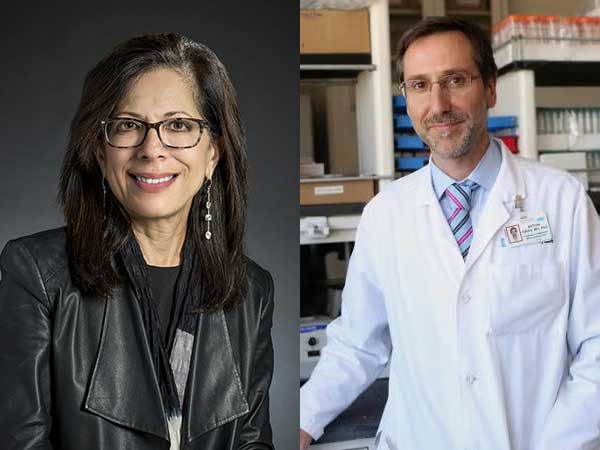Steven A. Rosenberg, fellow of the AACR Academy, has received the 2020 AACR-CRI Lloyd J. Old Award in Cancer Immunology.
The AACR-Cancer Research Institute Lloyd J. Old Award in Cancer Immunology recognizes an active scientist whose outstanding and innovative research has had a major impact on the cancer field and has the potential to stimulate new directions in cancer immunology.
Rosenberg is a senior investigator at the Center for Cancer Research, NCI, chief, Surgery Branch at the NCI, and professor of surgery at the George Washington University School of Medicine and Health Sciences.
Rosenberg is being recognized for his discoveries that led to the first effective cancer immunotherapy, interleukin-2 (IL-2), and the first adoptive cell transfer immunotherapies for both solid and blood cancers, including genetically modified T cells.
Rosenberg’s research established IL-2 as a growth factor for antitumor T cells in mice and humans, both in vitro and in vivo, and demonstrated that treating patients with metastatic melanoma with high doses of IL-2 could induce long-term tumor regression. These landmark discoveries led to IL-2 becoming the first cancer immunotherapy approved by the U.S. Food and Drug Administration (FDA), and it has been used to treat patients with metastatic renal cell carcinoma and metastatic melanoma since the 1990s.
Building on this work, Rosenberg pioneered adoptive cell immunotherapies by leveraging IL-2 activity to stimulate the growth of tumor-infiltrating lymphocytes (TILs) isolated from the tumors of melanoma patients. Reintroduction of these expanded TIL cell populations back into patients subsequently led to long-term tumor regression in many cases. Rosenberg and his team have since extended this approach and generated similar promising clinical results for breast, colorectal, and liver cancer patients. They also discovered that T cells are able to be genetically modified to express chimeric antigen receptors (CARs), and that these CAR-expressing T cells are able to target molecules expressed by tumor cells such as CD19 and may therefore be used to specifically target and treat chemorefractory CD19-expressing B-cell lymphomas. CD19-targeting CAR T cells have since been FDA-approved for this use and for the treatment of children with acute lymphocytic leukemia.








